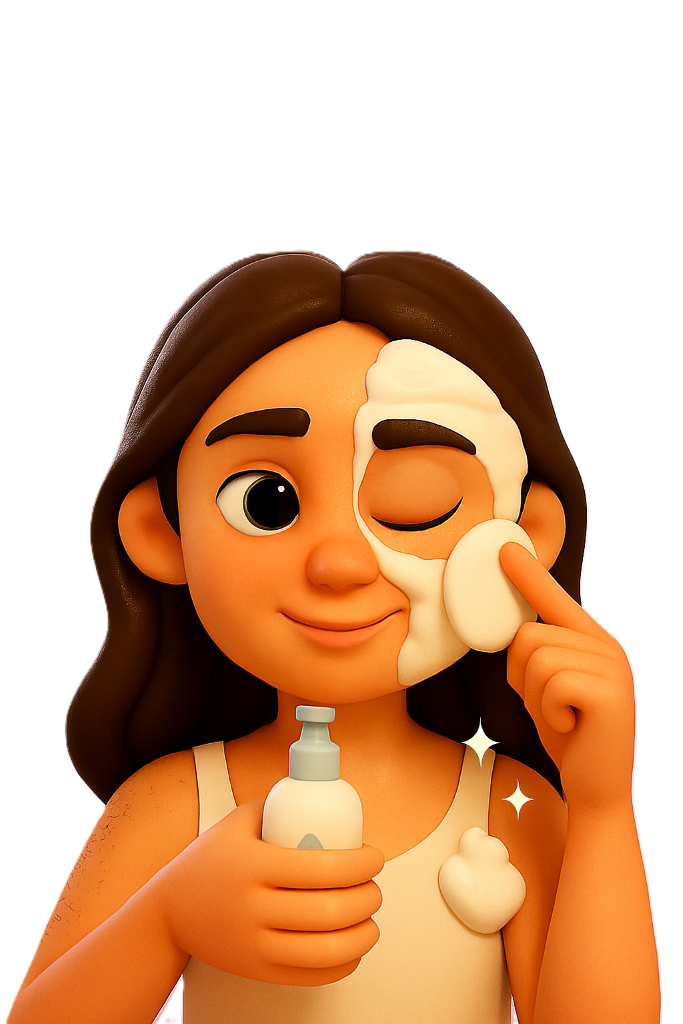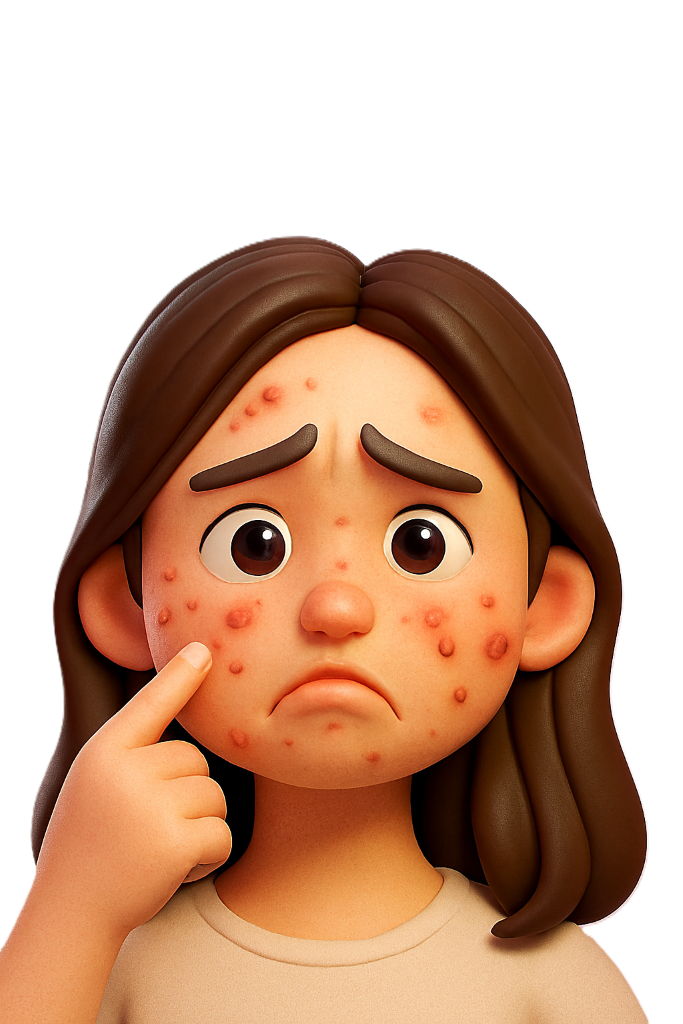- Amman, King Hussain Park, Jordan
- +(962) 000-0000
- info@curafile.com
Face & Body
- Home
- Face & Body
Taking care of your face and body is an important part of staying healthy and feeling good. When you follow regular routines and make smart, simple choices, you help your skin stay strong, fresh, and balanced. These habits also support your natural look and help you feel more confident every day.


Acne is a common skin condition that happens when hair follicles under the skin become clogged.
To diagnose acne, health care providers may: Ask about your family history, and, for girls or women, ask about their menstrual cycles…
Your back may be out of sight, but when you have back acne, it’s not out of mind. That’s especially true when you’re shirtless, go for a swim or try on that backless sundress.
Acne is a skin condition that nearly everyone deals with at some point in their lives.
our skin changes as you get older. You may notice that it becomes thinner and no longer looks as plump and smooth as it once did.
Wrinkles are creases in the skin. The medical term for wrinkles is rhytids.
Wrinkles can be a sign of a life well lived. They might deepen each time you smile, laugh at a joke or squint to read.

Liver spots are flat, brown or black spots that can appear on areas of the skin that are exposed to the sun. They have nothing to do with the liver or liver function.
Do nonprescription wrinkle creams really reduce the appearance of fine lines and wrinkles? It depends.
Good skin care can keep your skin healthy and glowing. Get tips on gentle cleansing, sun safety and more.
A morning skincare routine should focus on cleansing, hydration, and protection to help prepare skin for the day ahead.
Dry skin makes the skin look and feel rough, itchy, flaky or scaly. The location where these dry patches form vary from person to person.
To diagnose dry skin, your doctor is likely to examine you and ask about your medical history.

Although oily skin can clog pores and lead to increased acne breakouts, oily skin also has many benefits.
In many parts of the country, winter wreaks havoc on the skin. When the cold, dry air outdoors pairs with the hot, dry heat indoors, Sahara-like conditions ensue.
While it may seem that dry, cracked lips are something you must live with until spring comes..
In our quest for beautiful hair, we often do things that damage our hair. Damaged hair is fragile, so it tends to break.
These general skin care tips from dermatologists can benefit just about everyone.

Bags under eyes are evident without a medical diagnosis. You may have the skin under your eyes assessed by a healthcare professional to learn more about what’s causing the puffiness
Dark circles under the eyes happen when the skin beneath both eyes becomes darker than usual.
Contact lenses help people improve their vision. If you are not careful, contact lenses can cause major eye problems. It is important to keep your eyes safe.
Your health care provider is likely to diagnose ingrown hair by looking at your skin and asking about your hair removal habits.
Piercings might be more common than ever, but don’t take piercing lightly. Know the risks and understand safety steps.
My new ear piercing isn’t healing well. The skin is warm, itchy and still swollen after a week. Do I need to see a healthcare professional?
Your healthcare professional likely will ask about your medical history and do an exam. You may need a blood or urine test.

Cellulite is fat that collects in pockets just below the surface of the skin. It forms around the hips, thighs, and buttocks. Cellulite deposits cause the skin to look dimpled.
To prevent chapped hands: Avoid excessive sun exposure or exposure to extreme cold or wind..
Corns and calluses are thick layers of skin. They are caused by repeated pressure or friction at the spot where the corn or callus develops.
To check for hirsutism, your healthcare professional gives you a physical exam. You also answer questions about your medical history and any medicines you take.
Pregnancy
pregnancy is the process and series of changes that take place in a women’s organs and tissues as a result of a developing fetus. The entire process from fertilization to birth takes an average of 266-270 days, or about nine months.
Strong, Healthy, Empowered
Explore the key areas that support women’s health from preventive care to emotional well-being designed to empower you at every stage of life.

Breast Health

Reproductive Health

Healthy Aging

Mental Well-being

Nutrition & Fitness

Preventive Care
-
Find a clinic near you
-
Call for an appointment!
-
Feel free to message us!
About Us
At MediCenter we intend to create medicines that improve both the quality and duration of patient lives.
- 2702 Memory Lane
Chicago, IL 60605
Additional Links
- test October 20, 2025
- Hello world! October 7, 2025
- Many doctors use wrong test to diagnose kids food allergies February 12, 2017
- Rising cost of diabetes care concerns patients and doctors January 15, 2017
- Can breakfast help keep us thin? Nutrition science is tricky January 5, 2017
